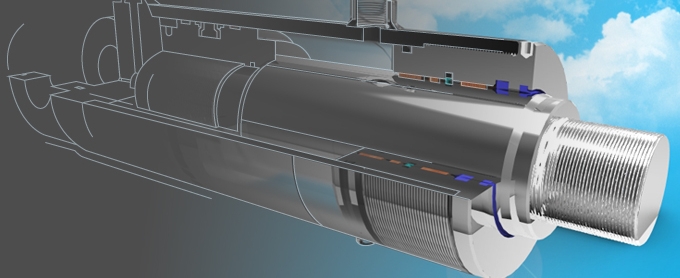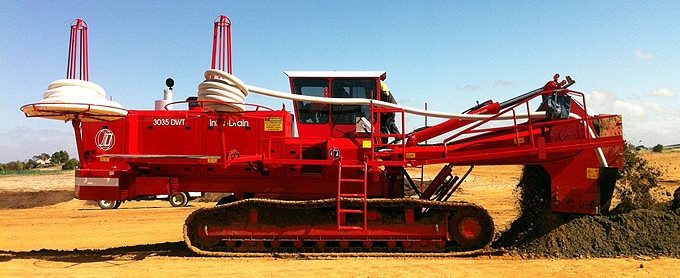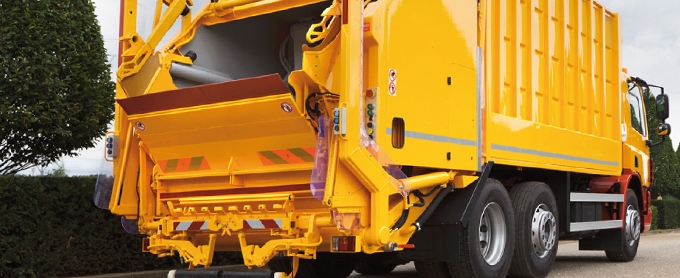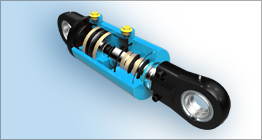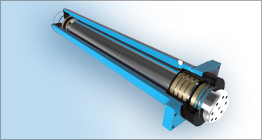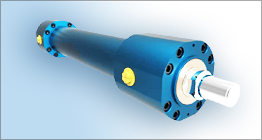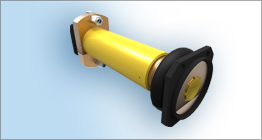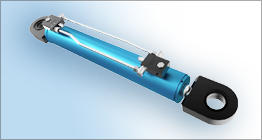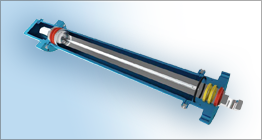Here's what I recommend if you're storing spare hydraulic cylinders for an extended period:
1. Always store fully retracted.
2. Store indoors in a clean, dry area.
3. Smear the internal surfaces of eye/clevis bushes
or bearings with grease - particularly if they're steel.
4. Protect any exposed chrome on the rod. Oil-impregnated tape
such as Denso tape can be used for this purpose.
Before applying, make sure the rod is fully retracted.
If a product like Denso tape is applied to the rod when
the rod is not fully retracted, subsequent retraction
of the rod can result in damage to the rod seal.
5. Plug the service ports with steel - not plastic, plugs
or blanking plates.
6. Consider filling the cylinder with clean hydraulic oil
through its rod-end service port. Particularly if it's
an expensive, large diameter or high pressure cylinder.
I say "consider" because there are a few issues to understand before you carry out step #6.
If the cylinder is not filled with oil it will obviously be filled with air. If this air is not perfectly dry, then as ambient temperature decreases the air can reach dew point. This results in moisture forming on the inside of the cylinder tube.
This can cause spot rusting and pitting of the tube surface, which will reduce the volumetric efficiency of the cylinder, the service life of the piston seal, and ultimately, the life of the tube itself.
By Brendan Casey



